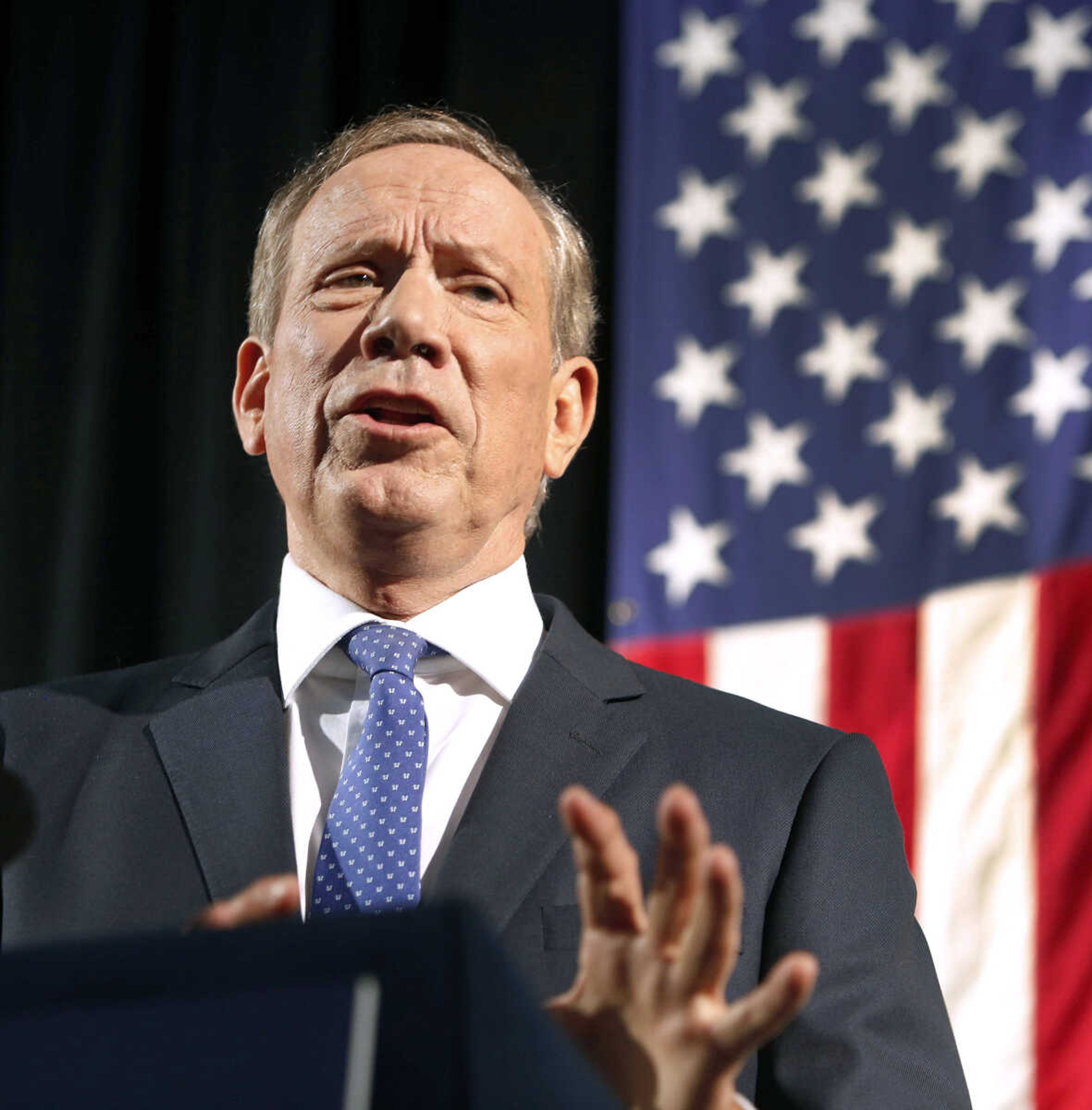Former NY GOP governor Pataki in the race for president
EXETER, N.H. -- George Pataki, the 9/11-era New York governor who achieved electoral success as a Republican in a heavily Democratic state, announced his candidacy for the presidential nomination Thursday, offering himself as a unifying figure in a divided nation...
EXETER, N.H. -- George Pataki, the 9/11-era New York governor who achieved electoral success as a Republican in a heavily Democratic state, announced his candidacy for the presidential nomination Thursday, offering himself as a unifying figure in a divided nation.
Just as he was overshadowed after the 2001 terrorist attacks by Mayor Rudy Giuliani in New York City and President George W. Bush, Pataki opened his 2016 campaign in the shadow of better known rivals. Out of office since 2006, he's a clear underdog in a bustling pack of favorites and long shots.
Pataki told about 150 supporters an increasingly intrusive government is jeopardizing the freedoms past generations fought for, and he will fight to get government out of people's way.
"It is to preserve and protect that freedom that this morning I announce I'm a candidate for the Republican nomination for president of the United States," he said.
The low-key Republican moderate flirted with presidential runs in 2008 and 2012 but stopped short. Now he hopes to reignite the bipartisan unity born in the trauma of 2001.
"While I saw the horrors of September 11 firsthand, in the days, weeks and months that followed, I also saw the strength of America on display," he said. And "I completely reject the idea that we can only come together in adversity."
Pataki said Americans, with a government that does not restrain freedom, "will once again astonish the world with what we can accomplish."
Political comity is a tall order in a nation -- and a party -- fraught with division. But Pataki invokes his record working with Republicans and Democrats alike as a three-term governor who in 1994 defeated Mario Cuomo, the liberal stalwart and celebrated orator many Democrats wanted to see run for president.
Pataki, 69, declared his candidacy in a YouTube video, set in a New York skyscraper, and his rhetoric seemed to echo sentiments of the 9/11 aftermath. "We are all in this together," he said. "And let us all understand that what unites us is so much more important than what might seem superficially to divide us."
Without Bush's bullhorn or Giuliani's in-your-face crisis management and eloquence, Pataki worked solidly with them to steady a devastated city. He quickly mobilized New York Army and Air National Guard troops. By the evening of Sept. 11, 750 troops had already reported to armories in New York City to support the massive security and rescue efforts.
As governor, he said, "My vision was not a partisan vision, it was a vision about people, about what we could accomplish together."
He's been a frequent visitor to New Hampshire and set his announcement event in Exeter because it was the state capital during the Revolutionary War and claims to be the birthplace of the Republican Party.
Despite his centrist leanings, he's spent recent months promoting his conservative credentials, as those running for the Republican nomination invariably do.
He's campaigned against President Barack Obama's health care law and Obama's executive order to offer protections against deportation to millions of immigrants living in the country illegally. In his announcement speech, he criticized Democratic candidate Hillary Rodham Clinton for claiming to represent aspirations of the middle class.
"We are the party of the middle class, unless by middle class they mean someone who left the White House dead broke and 10 years later had $100 million," he said of Bill and Hillary Clinton. "That's their party's candidate. She speaks for the middle class? They are the party of privilege."
Pataki didn't directly compare himself with other GOP rivals. But his wife, Libby, acknowledged the challenge her husband faces in a field that includes sitting senators, several current and former governors, business leaders and a renowned neurosurgeon.
"Are we prepared for a struggle and an uphill battle?" she asked. "We are absolutely prepared to enter the fray and fight the good fight."
Connect with the Southeast Missourian Newsroom:
For corrections to this story or other insights for the editor, click here. To submit a letter to the editor, click here. To learn about the Southeast Missourian’s AI Policy, click here.









